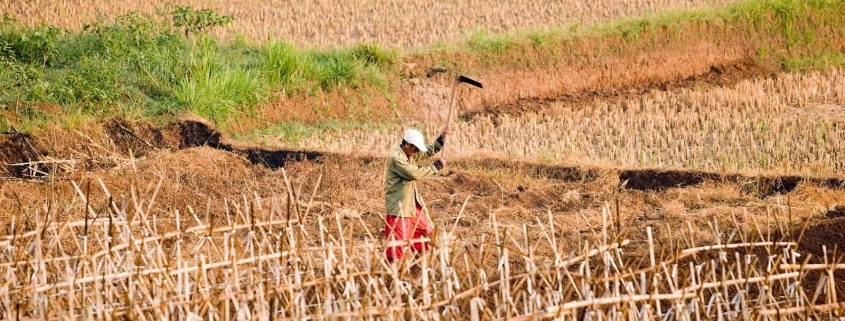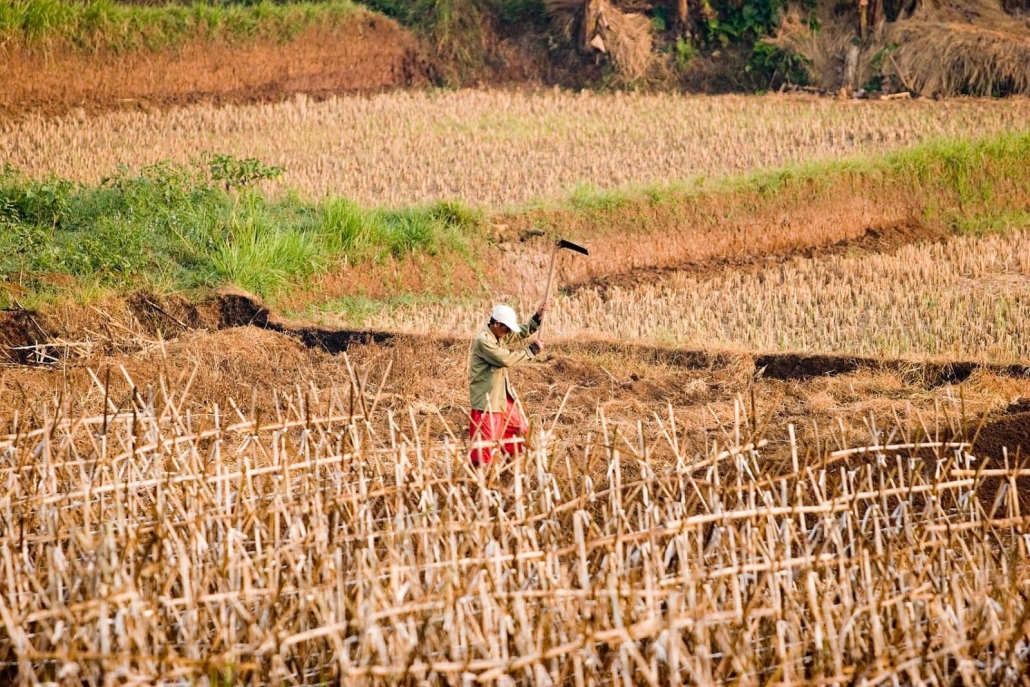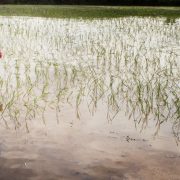HotSpots H2O: Acute Hunger Could Double Worldwide Due to Covid-19 Crisis, WFP Warns
Drought in Bogor Regency, Indonesia. Photo courtesy of Flickr.
The World Food Programme and other aid organizations warn that the Covid-19 pandemic and its economic reverberations could cause a substantial spike in global food insecurity.
Based on UN estimates, around 820 million people worldwide face some level of food shortage. According to the recently published Global Report on Food Crises 2020, some 135 million people in 55 countries are experiencing acute food insecurity. The WFP estimates that an additional 130 million people could become acutely food insecure due to the Covid-19 pandemic, bringing the global total to 265 million.
Most food insecure people live in countries affected by conflict, climate change, or economic crisis — countries like Yemen, Democratic Republic of the Congo, Afghanistan, and Venezuela. The WFP notes that food insecurity in these places has deteriorated because of the economic fallout from the coronavirus pandemic. The agency warns that new areas are also vulnerable to food shortages as economies unravel.
Acute hunger begins at stage three in the five-stage international classification system for hunger. It starts when households have nutrition deficits or they have to sell assets to pay for food.
Many more households are beginning to feel the pinch. The Global Report on Food Crises 2020 says that countries that rely on food imports, oil exports, tourism, or remittances from migrants working abroad will be especially prone to worsening hunger crises. These sectors have been severely constrained by economic shutdowns.
“Covid-19 is potentially catastrophic for millions who are already hanging by a thread. It is a hammer blow for millions more who can only eat if they earn a wage,” Arif Husain, the WFP chief economist, said in a statement. “Lockdowns and global economic recession have already decimated their nest eggs. It only takes one more shock – like Covid-19 – to push them over the edge. We must collectively act now to mitigate the impact of this global catastrophe.”
Lola Castro, regional director for WFP in southern Africa, voiced similar fears, noting that Covid-19 is likely to exacerbate food insecurity in countries already hit by multi-year drought.
“The lean season has been very, very hard for the last three years with almost no rain and poor harvests which have left 45 million people food insecure with 8.1 million supported by the WFP,” Castro told The Guardian.
In a report earlier this month, the WFP noted that the Covid-19 pandemic has not yet had a detrimental impact on the global food supply chain. Basic staples, at this point, remain well supplied and low priced.
Kayla Ritter is a recent graduate of Michigan State University, where she studied International Relations and Teaching English to Speakers of Other Languages. She is currently based in Manton, Michigan. Kayla enjoys running, writing, and traveling. Contact Kayla Ritter













Leave a Reply
Want to join the discussion?Feel free to contribute!